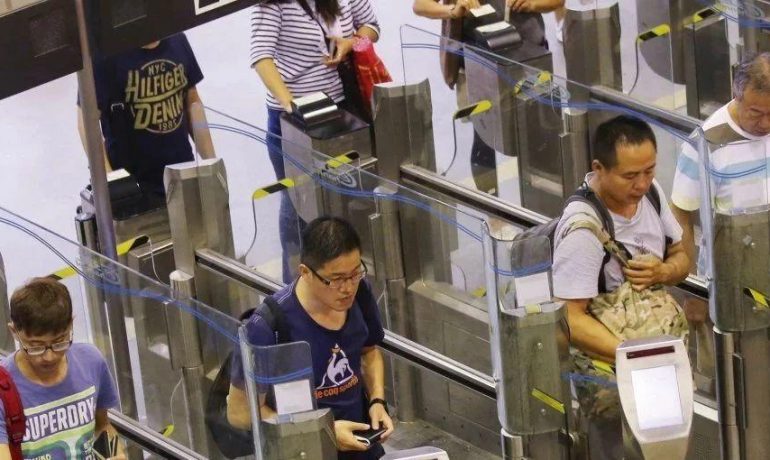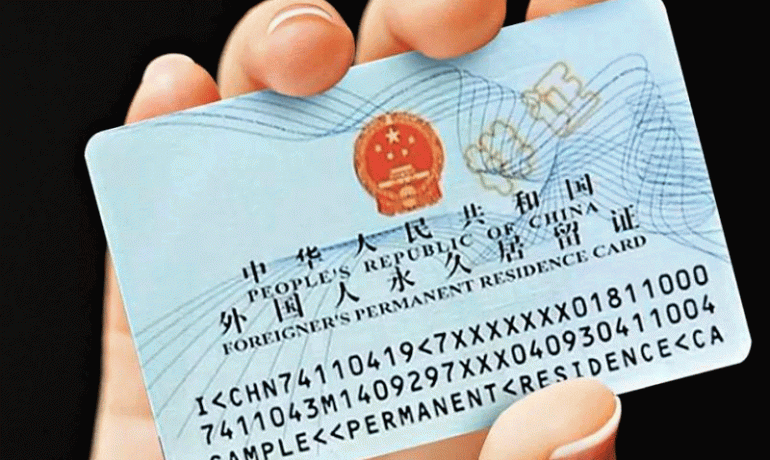Foreigners who live and work in mainland China for prolonged periods will be required to pay tax on worldwide income under a new law that took effect on Tuesday. But while the new regulations might at first seem punishing, Beijing has left plenty of room for non-natives to avoid the extra payments. © Image | Google Difference between a resident and non-resident taxpayer Approved at the end of August, the new legislation defines a “resident taxpayer” as anyone who is either domiciled in mainland China, or non-domiciled but spends 183 days or more over the course of a calendar year. Previously, foreigners – a term that includes residents of Hong Kong, Taiwan and Macau – had to spend more than 12 months in the country before being classed as a resident for tax purposes. © Image | Scmp The difference between a resident and non-resident taxpayer is that the former is liable to pay tax on their global income, not just the money they make in China. But it is not all bad news for foreigners working in the world’s most populous country, as with the new tax law comes an improved exemption to it. New Rule! Foreigners Can Avoid to Be Chinese Resident Taxpayers! Difference between now and before According to a notice published by the State Administration of Taxation last month, resident taxpayers who spend more than 30 consecutive days outside China in any given six-year period are exempt from having to declare their global earnings. In the past, they had to leave the country for 30 days or more every five years to gain the exemption, so the revision gives them 20 per cent more time to meet the obligation. Your Residence Permit in China Affected by This Form?! Questions raised about new 183-day rule However, Louis Lam, a tax partner at PwC Global Mobility Services, said that under the original law, as well as the option of the 30-day sojourn, taxpayers could avoid having to declare their worldwide income by taking shorter breaks, as long as they spent at least 90 days a year outside the country. That second option appeared to have been omitted from the revised legislation, which could cause problems for workers who were unable to take extended breaks away from the mainland, he said, but added there was still the chance it would be reinstated or clarified in a subsequent notice from the tax authority. When the new 183-day rule was announced in the summer, some observers said it went against Beijing’s efforts to attract overseas talent – including Hongkongers on relatively short-term contracts – to work in the mainland. © Image | Google Others said it was also unclear how the revised legislation would be applied – including exactly when the 183-day and six-year clocks start ticking – and if it would negate agreements already in place to prevent workers being taxed twice on the same earnings. Exemption no longer applies to these groups For instance, Beijing and Hong Kong have an agreement that allows people to work on either side of the border but pay tax only to the relevant authorities at home – a term loosely defined as where their main residence and family are. Under the new rule, that exemption no longer applies to certain groups, including: Hong Kong residents that have a permanent home and family on the mainland, Unmarried Hongkongers who work on the mainland and do not own a flat in their home city, Hong Kong retirees living on the mainland, Mainlanders who work but do not live in Hong Kong. As for bonus payments and equity incentives, the tax authority said last week that it would exclude these from the new tax rules for a further three years.
Category Archives: 政策解读
Attention! Work Visa Will Be Denied Permanently If…
2019 is coming soon, here we would like to summarize a review of visa and residence permit policies of 2018 in China. Click the photos to know more about the details and review the changes that have taken place around you! 1 New five- or 10-year multiple-entry visas The roll-out began on 2rd Jan. 2018 with the Beijing bureau of the State Administration of Foreign Experts Affairs issuing the country’s first Certificate for Foreign High-end Talent. © Image | GOOGLE 2 Get Work Permits Within Just a Few Days Now! Good news for some foreigners: China is now allowing ‘top overseas talent’ to stay in the country for a few months without having to apply for a work permit. And they’ll be put on a fast-track visa application process once they decide to stay. © Image | GOOGLE 3 Work Permit Applicants Can Verify Diplomas Online! China’s online system for verifying domestic and overseas diploma is launched officially. The notoriously grueling work permit application process for foreigners in China just got a little easier. © Image | GOOGLE 4 New Immigration Bureau Affects Your Resident Permit! The growing trend of people emigrating to and from China has prompted Chinese government to set up a new agency to coordinate immigration policies and their implementation. © Image | GOOGLE 5 China Starts to Store Fingerprints of All Foreign Passengers! From Apr. 29th, 2018, Foreign passengers aged from 14 to 70 years old who enter China via Baiyun International Airport shall be required to collect fingerprints. © Image | 白云边检 6 Expats Can Get China “Green Card” In These 4 Ways! © Image | GOOGLE 7 Strict Punishment on Overstay in China! © Image | GOOGLE 8 Work Visa Will Be Denied Permanently If… You should pay more attention to these things below since foreigners in these cases may no longer be allowed to obtain work visas! © Image | GOOGLE 9 Fined 500,000HKD & Imprisoned for 2 yrs If You Forget to… Hong Kong Customs announced that those who transit in Hong Kong with a large amount of cash should make a declaration, or they will be fined 500,000 HKD in maximum (about 63706.4 USD) and will be imprisoned for 2 years. © Image | GOOGLE 10 Work Permit Applicants Can Verify Diplomas For Free Now! From July 1, service fee of degrees and diplomas verification has been cancelled which also saved a lot of money. © Image | GOOGLE 11 To Pay Visa Fee via WeChat & Skip the Queue Now! Have A Try! With the further cooperation between the Exit & Entry Administration Bureau and WeChat, in addition to the visa application can be reserved through the WeChat official account, it is also possible to sit at home and skip the queue to pay the visa fee now! © Image | GOOGLE 12 China to Relax Work Options to Overseas Students in China! China will allow international students at Chinese universities nationwide to take part-time jobs during their studies to make the country’s higher educational system more attractive, the Ministry of Education said in a statement. © Image | GOOGLE 13 China Cancel Work Permit Requirement For These Regions! It will be easier for more people who are working on mainland China to change jobs or move among cities there in the future, after Beijing said it would abolish the work permit requirement for employees from Hong Kong, Macau and Taiwan. © Image | 明报 14 New Policy for These Regions to Get Chinese Residence Permits! A new regulation allows residents of Hong Kong, Macao, and Taiwan to apply for residence permits in the Chinese mainland. With a residence permit, they will enjoy more rights, basic public services, and other conveniences relating to their study, work, business operation, and life in the mainland. © Image | 明报 15 To Apply For 2-5 Years Work Visa In China? Check It Out! © Image | GOOGLE 16 New Deal: Lost Your Passport and Reissue Visa Instantly! © Image | 人民网 17 Are You Qualified for Long-term Work Permit In China? © Image | GOOGLE 18 How to Get Chinese Government Scholarship! 7 Programs Help! © Image | GOOGLE 19 IIT Fails Work Permit Extension In This Way! © Image | GOOGLE 20 Thailand Landing Visa Is FREE from Tomorrow! © Image | Weibo
Ultra-low Price Air Tickets Around Chinese Cities! What’s Up?
Travel by flight is by no means a cheap way for selection, even though you buy economy class. But I bet that you never see flight tickets with such ultra-low price as below ones. 1 A number of discounted flight tickets with surprisingly low prices were mistakenly offered on the website of China Eastern Airlines and some travel apps due to a “system maintenance” early Saturday morning. The Shanghai-based carrier later announced all the tickets sold during the period were valid. © Image | Weibo Travel enthusiasts found the ticket prices on China Eastern’s App and its official website plummeting to the lowest of only 5 percent of their normal prices beginning around 1am. A first-class ticket from Shanghai to Sanya, for instance, was sold at 120 yuan (US$17.3) on the carrier’s app. Normally, a one-way ticket from Shanghai to the popular tourist destination in China’s south Hainan Island in December costs at least 2,700 yuan by China Eastern. A one-way ticket between Shanghai and Beijing was sold at 70 yuan, comparing with around 600 yuan in average for the busiest domestic route. Those initially found the “system bug” informed others through the Internet, which led to a booking frenzy nationwide. © Image | Weibo A traveler surnamed Ren said he was informed in a Wechat group around 5am and soon booked three round-trip first-class tickets between Shanghai and Beijing for himself and family members for a trip planned in early December. “I managed to save about a total of 10,000 yuan,” he said. Another buyer claimed in the Wechat group he bought 30 round-trip tickets, Ren said. The ticket prices were restored to normal around 7am, according to Ren. China Eastern released a statement around noon and announced all the tickets sold during its system maintenance early Saturday morning were valid. 2 See? Everyone dreams to buy cheap flight tickets because you can really save yourself a lot. But the question is–how? Expats in China even find it is difficult to buy flight tickets, let alone knowing methods to get cheap or discounted flight tickets. © Image | Google Don’t feel frustrated about that, following tips are to help you buy relatively cheap air tickets Tip 1 Book Flight Tickets in Advance Buying flight tickets in advance is usually the most common way to get tickets in low price. You’re suggested to schedule your trip months earlier, including your general budget of tickets and accommodation. Tip 2 Avoid Tourist Seasons The lowest price of flight tickets in the tourist season is usually more expensive than price in the off-season. Generally speaking, in January to the beginning of March (except from Chinese-New-Year vacation), and November to the beginning of December, price is often at the lowest. © Image | Google Next comes April to May, and September to October. During the middle of June to the beginning of September, the middle of December to the beginning of January, and the Spring Festival, air tickets are really expensive! Tip 3 Use IGola If you intend to go on a trip urgently with no special plan for your trip, and all you care about is the cost, then you can book flight tickets on iGola, an international online ticket booking platform. Sign in iGola, click on a link “When to Go”, and then type in the place of departure and destination. © Image | Google After that, the website will select the best time for coming back as well as its ticket price. So you can easily find out the lowest price in lately several months. Website: www.igola.com Tip 4 Booking Buddy If you have a long-time planning before your trip, you can sign in Bookingbuddy to get flight ticket coupons and timely price information. Well, low-price tickets may be on sale at anytime! Just pay more attention! Website: www.bookingbuddy. com © Image | Google Tip 5 Choose Budget Airlines It is also known as LCC (Low-cost carrier). It is different from traditional airlines which airfare includes baggage fees, catering fees, surcharge for seat choosing and insurance. In LCC, passengers make choice on whether they pay these extra fees, only ticket price and fuel tax are necessary. Sounds really cheaper than the traditional one? But, you are not allowed to rebook your flight in LCC.
“All-in-One” Talent Card for Expats Introduced In Hangzhou!
Hangzhou, Zhejiang province has recently launched a talent card program amid efforts to attract high-caliber overseas professionals, according to a conference held on Aug 12. The program, which will take effect on Aug 20, focuses on six areas of expat life in Hangzhou, including Working permits, Education, Medical healthcare, Business insurance, Housing support Life services. The card is also known as the “All-in-One” Card. Image | Google Who can apply for? High-caliber workers who… Have obtained the Tier A working permit in China or Received approval by the Foreign Experts Bureau can apply for the talent card and enjoy preferential policies issued by Hangzhou government. What are the benefits? Benefits cover a work permit, child education and medical care. Cardholders will also enjoy subsidies in house purchases and rental, while Hangzhou will open all its elementary and middle schools to children of top international talent. Besides, the city will also employ international teachers to improve education quality. The program also reveals that every high-caliber overseas professional who works in Hangzhou will be provided with a citizen card and enjoy the same treatment as locals. Those who have obtained the Tier A working permit in China can apply for credit cards and engage with other financial services. Image | Google “Hangzhou has been leading the country in offering overseas professionals with all-round services. With the citizen card, they will have easy access to many local services, including parks, gyms, public transport and scenic spots”, said an official from Hangzhou Foreign Experts Bureau. In recent years, Hangzhou has actively built itself into a magnet for overseas professionals. To date, around 15,000 overseas professionals and over 5,000 foreign-funded companies have settled in the city. Share to let your friends know!




